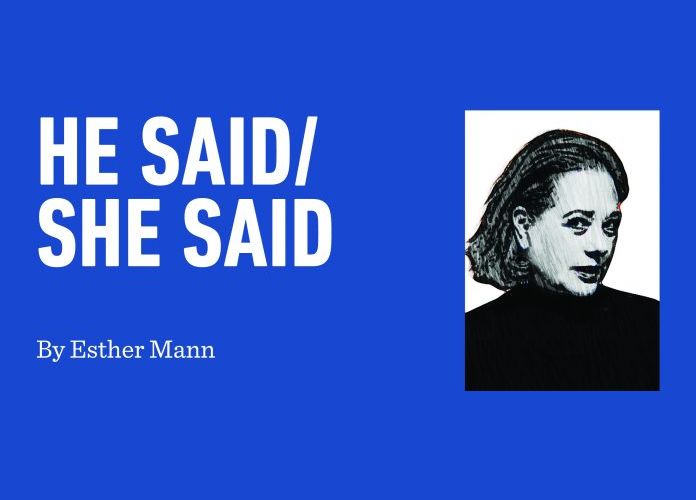Retirement In The Frum Community: Security, Purpose, And Pickleball
By Jack Strulowitz
Retirement in the frum community is not about walking away from work at 65 and spending the next 30 years on the golf course. Life in our world comes with unique financial responsibilities, rhythms, and values. Between yeshiva tuition, supporting children and grandchildren, communal obligations, and maintaining a dignified standard of living, the way we think about retirement differs sharply from the mainstream American narrative. As a financial advisor working closely with high–net-worth families, I see firsthand both the opportunities and pitfalls in preparing for this stage of life. Retirement in the frum community is less about checking out and more about shifting to a new chapter with security, purpose, and flexibility.
Most Americans plan for a retirement that replaces 70–80% of their working income. But in the frumworld, spending patterns don’t always decline as expected. In fact, expenses often increase. Weddings, barmitzvahs, and family milestones don’t pause once you leave the workforce. And in many cases, parents and grandparents are helping to shoulder significant costs. Families remain financially intertwined, whether it’s children in kollel, grandchildren in yeshiva, or simply helping the next generation buy homes. Maaser and charitable contributions continue to be a bedrock of life, and many want to maintain or even expand their charitable giving during retirement. At the same time, living with kavod and maintaining stability for children and grandchildren is paramount, so drastic downsizing or cutting back is rarely an option. These realities mean that retirement requires more than just a nest egg. It requires careful structuring of cash flow, tax planning, and estate planning.
Even among successful families, I often see recurring gaps. Too much wealth can be tied up in non-liquid assets such as homes, investment properties, and private businesses. These may hold great value, but don’t always provide the liquidity needed for daily spending. Many also lack tax diversification, with the bulk of their wealth in pre-tax retirement accounts. While these can grow significantly, they also create large future tax liabilities and can push retirees into higher Medicare brackets. Estate conversations are often delayed, creating unnecessary taxes and stress. And of course, many underestimate longevity. With improved healthcare, retirement isn’t a 10–15-year stage; it can last 30 years or more, requiring far more planning than most anticipate.
There is another challenge that doesn’t show up in balance sheets but is just as important: the question of purpose. One client of mine, a successful plumbing contractor, retired after decades of hard work. He had done well financially, and on paper, his retirement was secure. Yet, after three years at home, he confided that he felt aimless, even depressed. The simchas were nice, the occasional vacation was enjoyable, but the lack of daily structure wore on him. Ultimately, he went back to work with his son in the same business, not because he needed the income, but because he needed the meaning. He told me it was one of the best decisions he ever made. His energy returned, his days had shape, and his family saw a change in his entire demeanor.
This story illustrates something I see often: money alone is not enough for a successful retirement. If one is determined to retire, it’s crucial to have a plan for how to stay active and engaged. Some people thrive with part-time consulting, volunteering, or mentoring. Then there are the trends we all notice today: pickleball courts packed with retirees, long-running canasta games, and plenty of people spending time with children and grandchildren. Others lean into travel or even buying that Florida home they always dreamed of. What doesn’t work is letting retirement slip into endless Instagram scrolling and idle downtime. Whatever the form, the point is the same—retirement without purpose can quickly become unhealthy.
The financial side must be structured carefully. Retirement planning should focus on cash flow, not just assets. That means evaluating Social Security, pensions, portfolio withdrawals, real estate, and any ongoing business interests, and then structuring them in a stable and tax-efficient way. Taxes need to be managed proactively, since realized capital gains, IRA withdrawals, charitable gifting, and Roth conversions all affect what you keep. Healthcare also has to play a part since Medicare premiums are income-based and long-term care costs can’t be ignored. At the same time, legacy goals matter. Whether it’s setting aside funds for children’s housing, seeding tuition accounts, or supporting charitable causes, planning should reflect your vision for impact.
For us, money is never just numbers; it’s a vehicle to support family and community. A well-designed retirement plan creates the ability to continue living with dignity, to help the next generation, and to give without fear. That requires both technical precision (understanding portfolios, taxes, and estate structures), and an appreciation for the unique pressures of our lives.
If you’re approaching retirement, or even just starting to think about it, consider three questions. What does retirement look like for me? Traveling? Supporting family? Spending more time attending shiurim or learning? Philanthropy? The vision should drive the plan. What commitments do I want to maintain or increase? Tuition help, simchas, charitable giving—all of these shape cash flow needs. And how do I want to be remembered? Estate planning is not only about tax efficiency, but about passing on values along with wealth.
The earlier you have these conversations, the more tools and strategies we can employ to secure your goals. Retirement in the frum community isn’t about stepping away from responsibility; it’s about transitioning into a stage of life with freedom, purpose, and contribution. As Dovid Hamelech writes in Tehillim, “Od yenuvun beseiva; desheinim ve’ra’ananim yihiyu—even in old age, one can still bear fruit and remain productive and vibrant.” With careful planning, high–net-worth families can ensure that their later years are not only secure financially, but also productive and deeply meaningful. Just make sure you find something to do with your time or you may end up a full-time family babysitter, which, to be honest, is harder work than any career you ever retired from. n
Jack Strulowitz is a Financial Advisor at Bernath & Rosenberg in Cedarhurst, NY, where he helps high–net worth individuals and families with retirement, tax, and estate planning. For questions or to schedule a consultation, please contact [email protected] or 847-962-3352.











